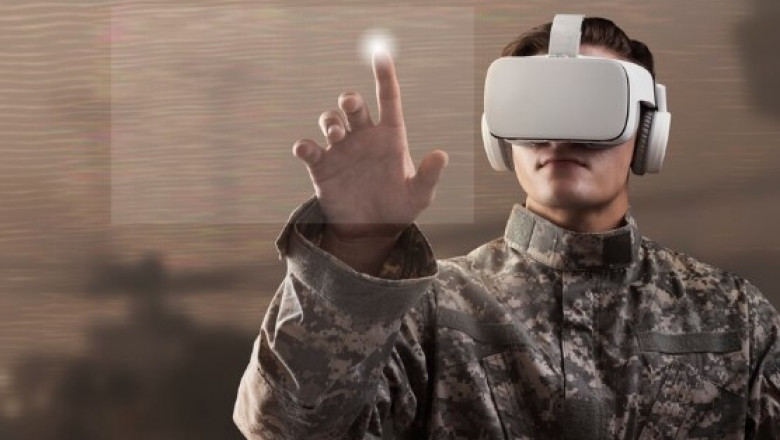views
Imagine a future where battles are fought not just with bullets, but with data, drones, and decision-making algorithms. This isn’t a scene from a sci-fi novel; it’s today’s reality, thanks to the rise of Artificial Intelligence (AI) in defense systems. While stories of sentient machines and robot soldiers capture our imaginations, the real-world application of AI in military settings is more nuanced, more strategic, and very much in progress.
What Is AI in Defense?
AI in defense refers to the use of intelligent machines and algorithms to support military operations. This includes everything from data analysis and surveillance to autonomous drones and cybersecurity. These systems can perform tasks faster and more accurately than humans, and sometimes without direct human input.
Think of it like this: if traditional warfare was chess, AI is turning it into a game of 3D chess, where pieces can move themselves, learn from past games, and even predict your next move.
Key Roles AI Plays in Defense
Let’s break down the most important roles AI plays in modern defense systems:
Intelligence and Surveillance
AI can analyze vast amounts of satellite, video, and sensor data faster than any team of humans. This helps defense organizations track movements, identify threats, and make decisions with greater precision. It’s like giving soldiers a crystal ball, powered by algorithms.
Autonomous Vehicles
From unmanned aerial vehicles (UAVs) to autonomous submarines, AI enables machines to operate without constant human control. These vehicles can scout dangerous areas, deliver supplies, or even neutralize threats while minimizing risk to human life.
Cybersecurity
In the digital age, wars aren’t only fought on land, sea, or air, they’re fought online. AI is a powerful weapon against cyberattacks, detecting unusual patterns, preventing intrusions, and even launching countermeasures in real time.
Decision Support
AI can act as an assistant to commanders by offering insights based on historical data, current conditions, and predictive modeling. It doesn't make decisions for humans but gives them the tools to make better ones, faster.
Simulation and Training
AI-powered simulations create realistic training environments for soldiers. These “digital boot camps” allow troops to practice responses to complex scenarios without the real-world risks.
The Ethical Side of AI in Defense
Of course, with great power comes great responsibility. The use of AI in defense raises critical ethical questions. Should machines be allowed to decide when to use lethal force? How do we ensure that autonomous systems follow international laws of war? These are the kinds of questions being asked by military leaders, governments, and scientists alike.
Real-World Examples
Project Maven: A U.S. Department of Defense initiative that uses AI to interpret video footage from drones.
Russia’s Uran-9: An unmanned combat ground vehicle controlled via AI, designed for reconnaissance and fire support.
Israel’s Iron Dome: Uses AI to determine whether incoming threats are dangerous enough to warrant interception.
Fiction Meets Reality
For lovers of military sci-fi on platforms like Inkitt, AI in defense offers fertile ground for storytelling. Writers can explore what happens when machines think like generals or when soldiers rely on digital allies. The blurred line between reality and imagination gives readers a thrill and a chill.
Conclusion
AI isn’t replacing soldiers, it’s transforming how wars are fought and won. As technology evolves, defense systems are becoming smarter, faster, and more efficient. But the real battle may lie in balancing innovation with humanity, precision with ethics.
Whether you're a tech enthusiast, a storyteller, or simply curious about the future, the rise of AI in defense is a chapter worth reading and writing.
Frequently Asked Questions (FAQs)
Q1: Can AI replace soldiers on the battlefield?
AI can support and enhance military operations, but it is unlikely to completely replace human soldiers due to ethical, legal, and emotional complexities.
Q2: Are there any risks with using AI in military systems?
Yes. Risks include misidentification of targets, system malfunctions, ethical concerns, and the potential for AI to be used in autonomous lethal decision-making.
Q3: How is AI currently used in defense?
AI is used in areas such as surveillance, cybersecurity, drone navigation, decision support, and training simulations.






















Comments
0 comment